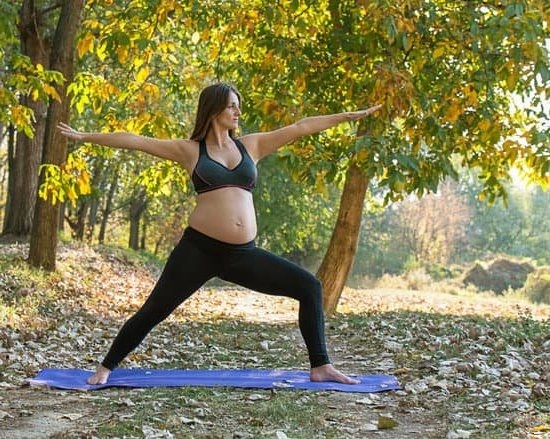Are you experiencing back pain during pregnancy? Many expectant mothers find themselves dealing with discomfort and pain in their backs as their pregnancy progresses. This section will explore the causes of back pain during pregnancy, the physical changes that contribute to this discomfort, and provide tips for managing and preventing back pain. Whether you are in your first trimester or nearing the end of your pregnancy, understanding and addressing back pain is essential for a more comfortable journey to motherhood.
During pregnancy, many women experience back pain due to a variety of factors such as weight gain, hormonal changes, and the shifting of the body’s center of gravity. As the baby grows, there is added pressure on the spine and pelvis, leading to discomfort for many women. In this section, we will delve into these causes in more detail to help you better understand why you may be experiencing back pain during this special time in your life.
Additionally, we will discuss safe exercises and stretches that can alleviate back pain as well as the importance of proper posture. We will also touch upon when it may be necessary to seek medical help for back pain during pregnancy and offer tips on choosing supportive shoes and clothing.
Finally, we’ll provide guidance on how to get a good night’s sleep despite pregnancy-related back pain. So if you’re struggling with back pain during your pregnancy journey or simply want to be prepared for what may come, read on for valuable insights and practical advice.
The Physical Changes That Contribute to Back Pain in Pregnancy
During pregnancy, a woman’s body goes through numerous physical changes, which can contribute to back pain. These changes include weight gain, hormonal changes, and the shifting of the body’s center of gravity.
The added weight of the growing baby puts extra stress on the spine and muscles, leading to discomfort and pain in the back. Additionally, hormonal changes during pregnancy can cause the ligaments in the pelvic area to become more relaxed and loose, which can affect the stability of the spine and lead to back pain.
Physical Changes Contributing to Back Pain During Pregnancy
- Weight gain
- Hormonal changes
- Shift in center of gravity
- Relaxation of pelvic ligaments
In addition to these factors, the expanding uterus also plays a role in causing back pain during pregnancy. As the uterus grows, it stretches and weakens the abdominal muscles, which can then lead to increased strain on the lower back. All of these physical changes combined create a perfect storm for experiencing back pain during pregnancy.
Impact of Expanding Uterus on Back Pain
- Weakening of abdominal muscles
- Increased strain on lower back
- Stretching of supporting ligaments
It is important for pregnant women to be aware of these physical changes that may contribute to back pain so they can take proactive measures to manage and prevent discomfort. By understanding how their bodies are changing during pregnancy, women can make informed decisions about posture, exercise, clothing choices, and seeking medical help when necessary.
Tips for Managing and Preventing Back Pain During Pregnancy
During pregnancy, many women experience discomfort and pain in their lower back. This can be caused by a variety of factors including weight gain, hormonal changes, and the shift in the center of gravity as the baby grows. Fortunately, there are several ways to manage and prevent back pain during pregnancy.
Stay Active
One of the best ways to manage back pain during pregnancy is by staying active. Low-impact exercises such as walking, swimming, and prenatal yoga can help strengthen the muscles that support the back. It’s important to consult with a healthcare provider before starting any new exercise routine during pregnancy.
Practice Good Posture
Practicing good posture can also help alleviate back pain during pregnancy. This means standing up straight, sitting in supportive chairs, and avoiding slouching. Using a cushion or pillow for additional support while sitting can also help reduce strain on the lower back.
Use Proper Lifting Techniques
Another tip for managing and preventing back pain during pregnancy is using proper lifting techniques. Avoid heavy lifting whenever possible, but if you need to pick something up, remember to bend at the knees and lift with your legs instead of your back. This can help prevent injury and strain on the lower back.
By incorporating these tips into daily life, women can effectively manage and prevent back pain during pregnancy, leading to a more comfortable experience throughout this special time in their lives.
Safe Exercises and Stretches to Alleviate Back Pain
During pregnancy, it is important to maintain a regular exercise routine to help alleviate back pain and promote overall health and well-being. However, it is crucial to engage in safe and appropriate exercises and stretches that are specifically tailored for pregnant women. Here are some safe exercises and stretches that can help alleviate back pain during pregnancy:
- Prenatal Yoga: Prenatal yoga focuses on gentle stretching, breathing techniques, and relaxation, which can help improve flexibility and reduce tension in the back muscles.
- Pelvic Tilts: Pelvic tilts are an effective exercise for strengthening the abdominal muscles and relieving pressure on the lower back. This exercise involves tilting the pelvis forward and backward while on hands and knees.
- Swimming: Swimming is a low-impact aerobic exercise that can help alleviate back pain during pregnancy. The buoyancy of water provides relief from the weight of the belly, while also strengthening the back muscles.
In addition to these exercises, there are specific stretches that can target the back muscles and provide relief from pregnancy-related back pain. These include:
- Cat-Cow Stretch: This yoga stretch involves arching and rounding the back while on hands and knees, which helps to gently mobilize the spine and relieve tension in the back.
- Child’s Pose: The child’s pose stretch helps elongate the spine, relax the lower back muscles, and release tension in the hips and buttocks.
- Seated Forward Bend: Sitting with legs extended, bending forward at the hips while keeping the spine straight can help stretch the hamstrings, lower back, and hips.
It is important to consult with a healthcare provider or a prenatal fitness specialist before starting any new exercise or stretching routine during pregnancy. They can provide personalized recommendations based on individual health status and gestational age. Regular physical activity combined with safe exercises and stretches can play a vital role in managing back pain during pregnancy.
When to Seek Medical Help for Back Pain During Pregnancy
During pregnancy, back pain is a common complaint as the body undergoes various changes to accommodate the growing baby. While some discomfort is normal, there are instances when back pain during pregnancy should prompt expecting mothers to seek medical help.
Warning Signs of Back Pain During Pregnancy
It’s essential for pregnant women to be aware of the warning signs that indicate when their back pain may require medical attention. If the back pain is severe and persistent, especially if accompanied by other symptoms such as fever, vaginal bleeding, or numbness and tingling in the legs, it’s crucial to consult with a healthcare provider.
Importance of Consulting a Healthcare Provider
Seeking medical help for back pain during pregnancy becomes important to rule out any potential complications. A healthcare provider can evaluate the severity of the pain and recommend appropriate treatment options. It’s also an opportunity for pregnant women to discuss any concerns they may have about their back pain and receive personalized advice on managing it.
When Not to Delay Medical Help
Pregnant women should not delay seeking medical help if their back pain is impacting their daily activities or causing significant distress. It’s important to prioritize maternal health and well-being during pregnancy, so consulting with a healthcare provider early on can help address any underlying issues contributing to the back pain.
The Importance of Proper Posture in Relieving Back Pain
During pregnancy, the body undergoes various changes, including shifts in weight distribution and loosening of ligaments. These changes can lead to an increase in back pain for many women. One way to alleviate and prevent back pain during pregnancy is by maintaining proper posture. Proper posture can help distribute the weight more evenly across the body, reducing strain on the back muscles and promoting better spinal alignment.
One of the most important aspects of proper posture during pregnancy is maintaining a neutral spine position. This means keeping the natural curves of the spine aligned while sitting, standing, and walking. Avoiding slouching or overarching the lower back can help reduce pressure on the spine and minimize back pain. Additionally, using supportive chairs and pillows can help maintain proper posture while sitting or sleeping.
Pregnant individuals should also be mindful of how they lift objects or perform daily activities to avoid putting unnecessary strain on their backs. Using proper body mechanics, such as bending at the knees instead of the waist when picking up items, can help reduce the risk of exacerbating back pain during pregnancy. By prioritizing good posture throughout their daily routines, pregnant individuals can effectively manage and prevent back pain associated with pregnancy.
| Importance of Proper Posture | Relieving Back Pain |
|---|---|
| Promotes even weight distribution | Reduces strain on back muscles |
| Maintains spinal alignment | Minimizes pressure on the spine |
| Supports neutral spine position | Avoids exacerbating back pain |
Choosing the Right Supportive Shoes and Clothing for Pregnancy Back Pain
Pregnancy brings about a multitude of changes in a woman’s body, and one of the most common complaints during this time is back pain. Fortunately, there are ways to alleviate this discomfort, including choosing the right supportive shoes and clothing.
It is important to understand that the additional weight gained during pregnancy puts extra stress on the spine and lower back, leading to discomfort and pain. By making simple adjustments to footwear and clothing choices, pregnant women can find relief from back pain.
When it comes to footwear, it is crucial to choose shoes that provide adequate support for the feet and lower back. Look for shoes with a low heel, good arch support, and cushioning. Avoid high heels or completely flat shoes as they can exacerbate back pain. Additionally, consider investing in orthotic inserts for added support and comfort.
In terms of clothing, wearing supportive maternity bras can help alleviate strain on the shoulders and upper back. Look for bras with wide straps that distribute weight evenly and provide good support. When it comes to everyday clothing, opt for loose-fitting clothes made of breathable materials that allow for unrestricted movement. Maternity support belts can also provide additional support to the lower back and pelvis, helping to reduce discomfort throughout the day.
It’s important to note that everyone’s body is different, so what works for one person may not work for another when it comes to alleviating pregnancy-related back pain. Therefore, it’s essential to listen to your body and seek out options that bring you relief while promoting proper alignment and support.
| Supportive Footwear | Supportive Clothing |
|---|---|
| Low-heeled shoes with arch support | Maternity bras with wide straps |
| Cushioned soles | Loose-fitting clothes made of breathable materials |
| Orthotic inserts for added support | Maternity support belts |
How to Get a Good Night’s Sleep Despite Pregnancy-Related Back Pain
In conclusion, back pain during pregnancy can be a challenging and uncomfortable experience for many women. The physical changes that occur during pregnancy can contribute to this discomfort, making it crucial to understand the causes in order to effectively manage and prevent this issue. By prioritizing proper posture, choosing supportive shoes and clothing, as well as engaging in safe exercises and stretches, pregnant women can find relief from back pain.
It is also important to recognize when medical assistance is necessary. If the back pain becomes severe or is accompanied by other symptoms, seeking help from a healthcare professional is imperative. Additionally, getting a good night’s sleep despite pregnancy-related back pain is possible with the right strategies and support systems in place.
Ultimately, by incorporating these tips and recommendations into their daily routine, pregnant women can minimize the impact of back pain on their overall well-being. While it may not be entirely avoidable, proactive measures can make a significant difference in reducing discomfort and ensuring a more pleasant pregnancy experience.
Frequently Asked Questions
What Can I Do to Relieve Back Pain During Pregnancy?
To relieve back pain during pregnancy, it’s important to practice good posture, wear supportive footwear, and engage in gentle exercises like prenatal yoga or swimming. Additionally, using a pregnancy pillow for support while sleeping can also help alleviate discomfort.
When Should I Worry About Back Pain in Pregnancy?
Back pain in pregnancy should be a cause for concern if it is severe, persistent, or accompanied by other symptoms such as fever, vaginal bleeding, or numbness/tingling in the legs. It’s important to consult with a healthcare provider if the pain becomes unmanageable.
What Is the Best Position to Relieve Back Pain During Pregnancy?
The best position to relieve back pain during pregnancy is typically lying on one’s side with a pillow between the knees. This helps to maintain the natural curvature of the spine while providing support to the hips and lower back. Additionally, using cushions for additional support while sitting or reclining can also help reduce discomfort.

Welcome to my fertility blog. This is a space where I will be sharing my experiences as I navigate through the world of fertility treatments, as well as provide information and resources about fertility and pregnancy.





